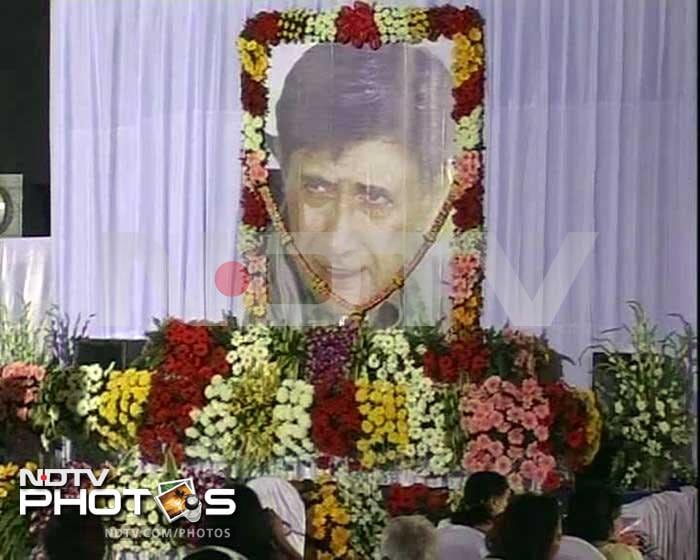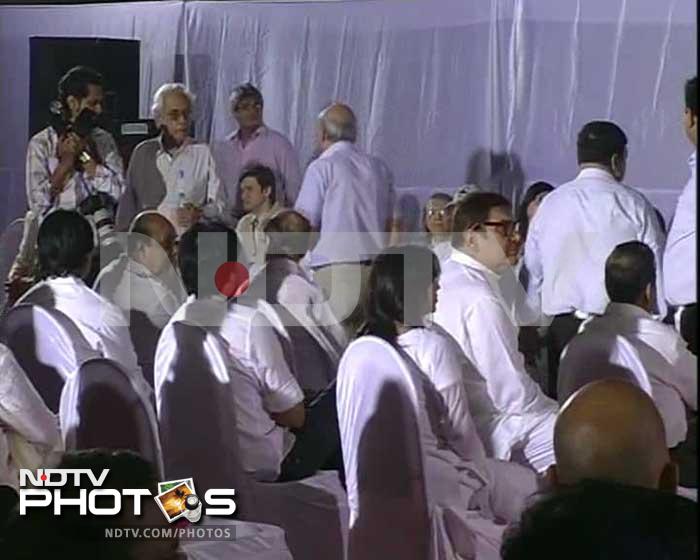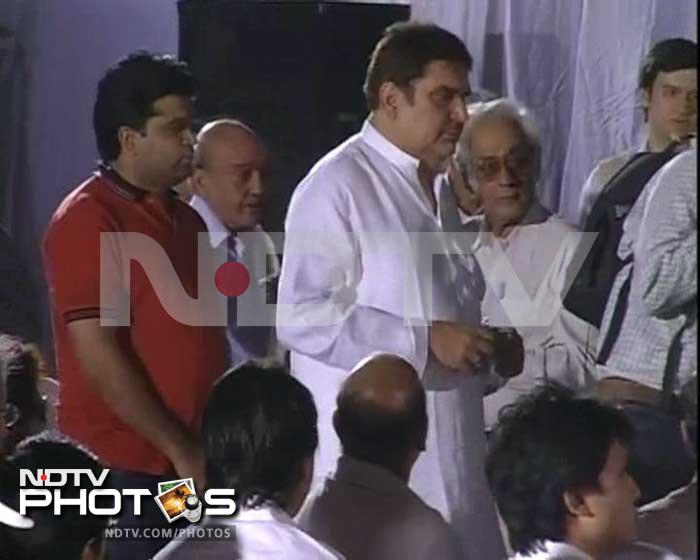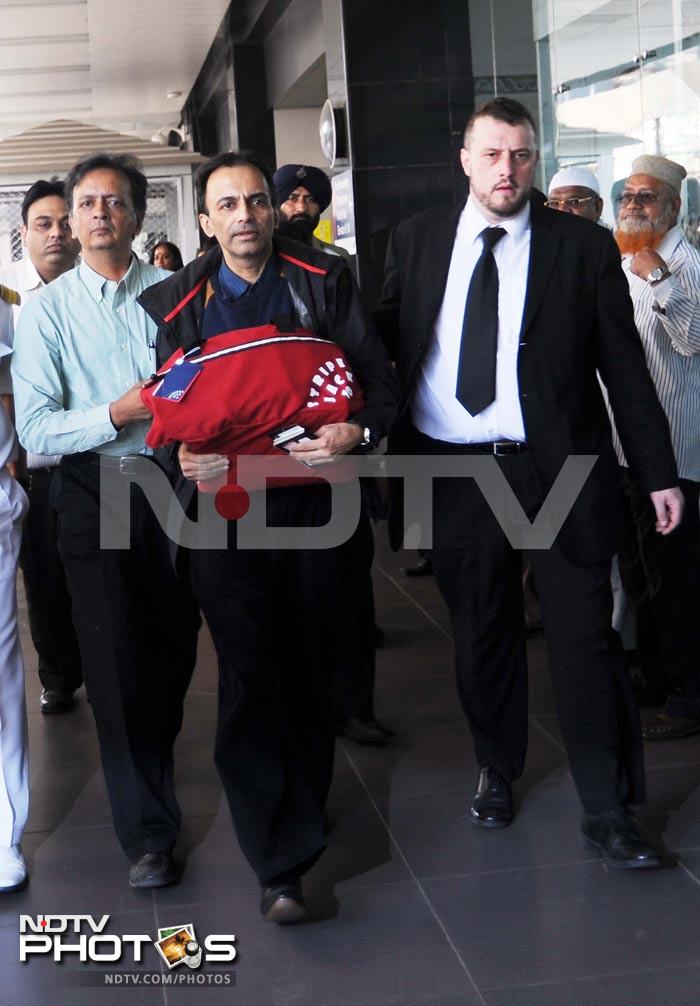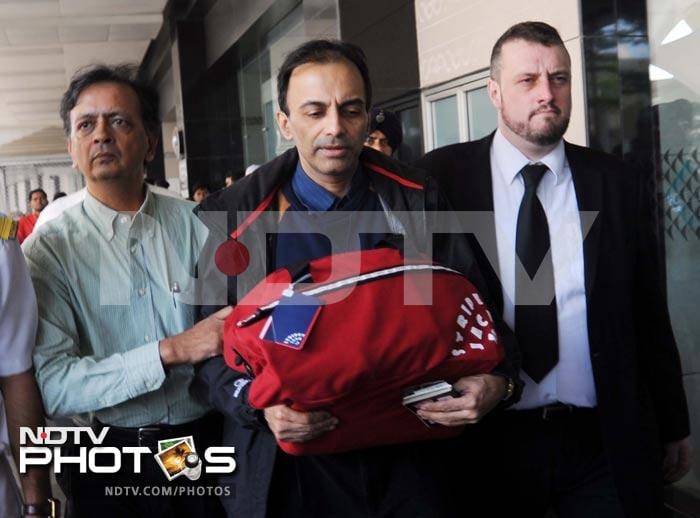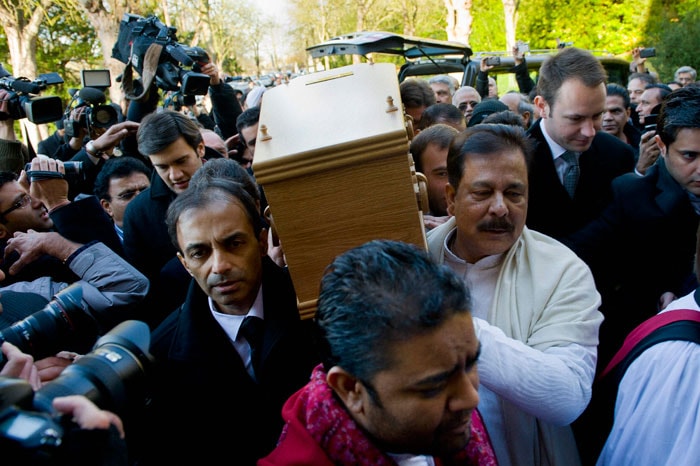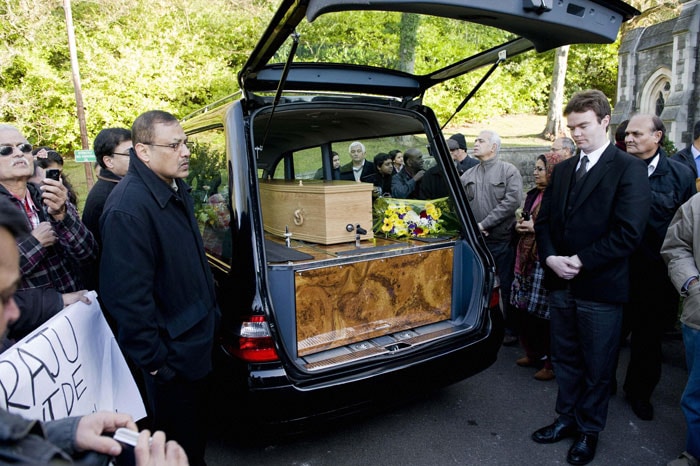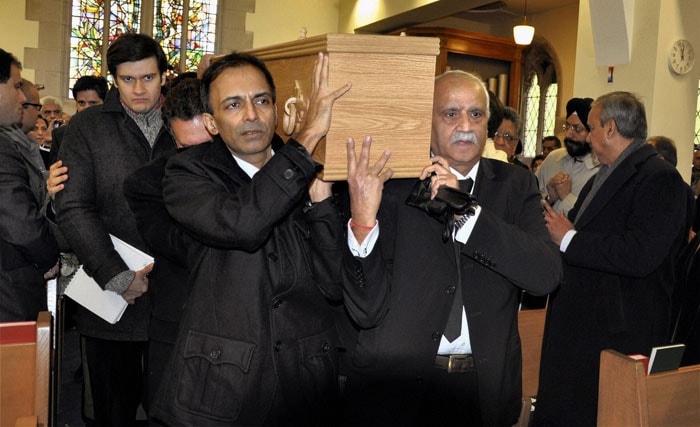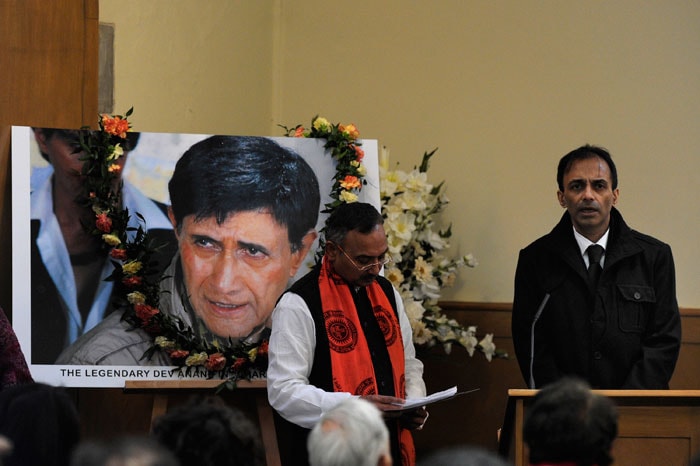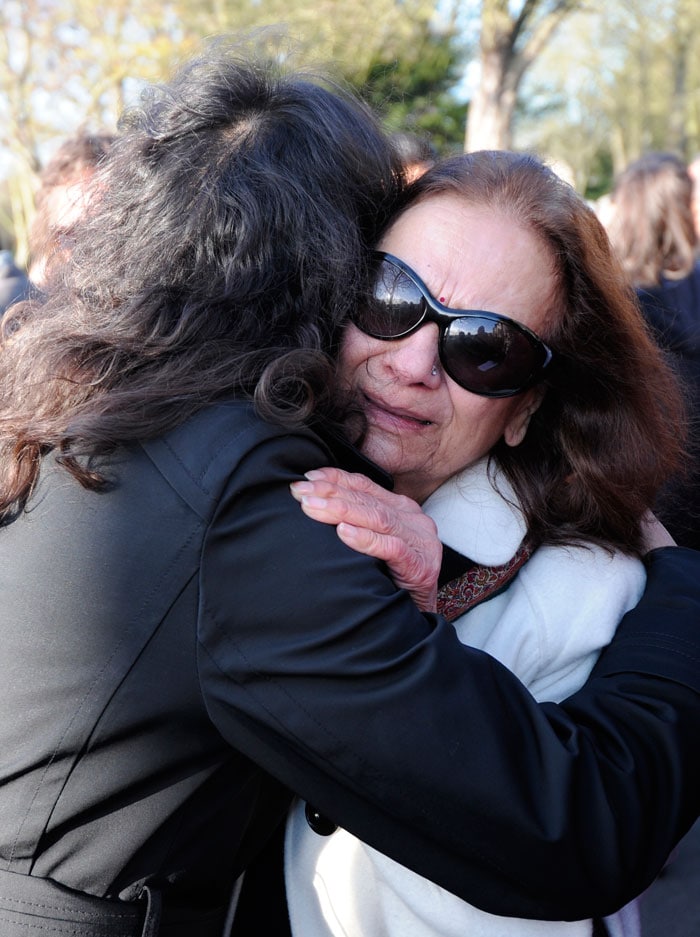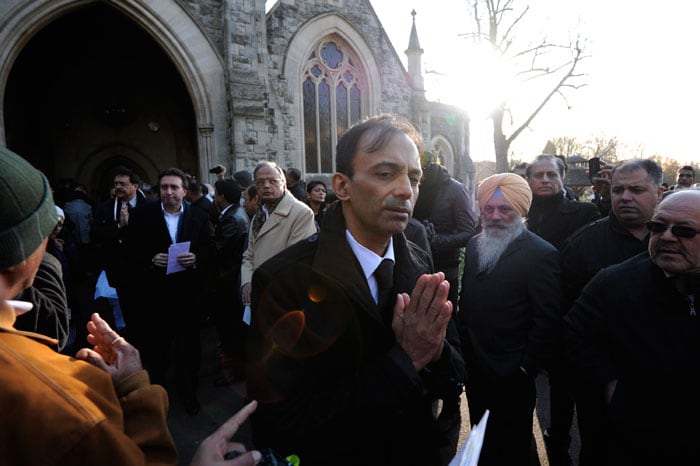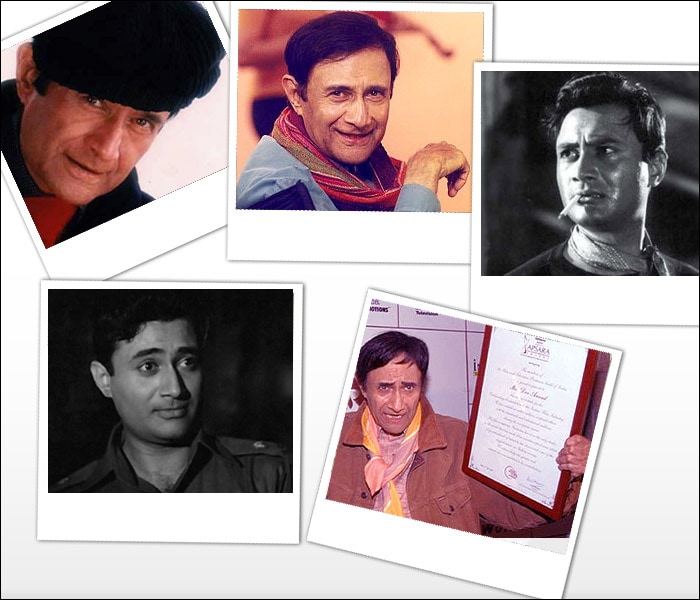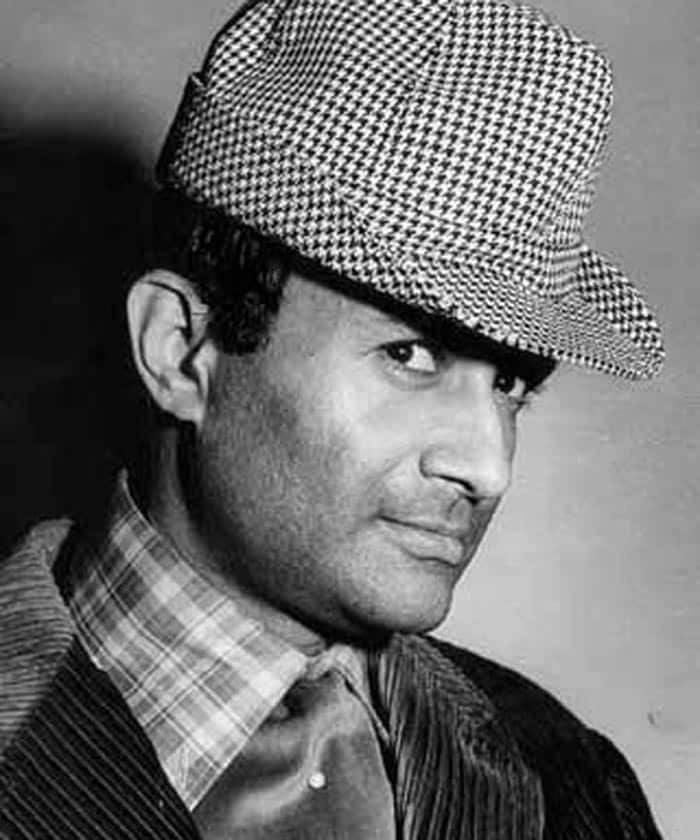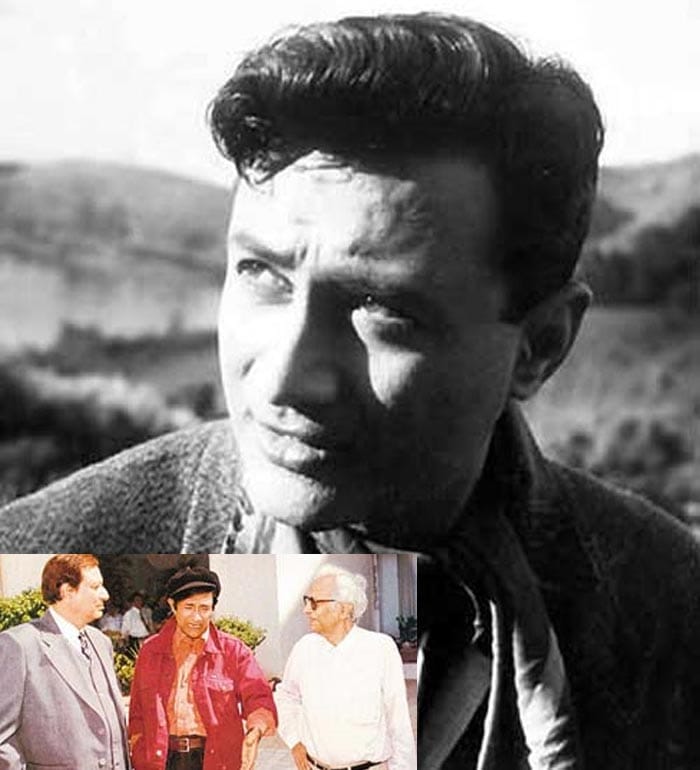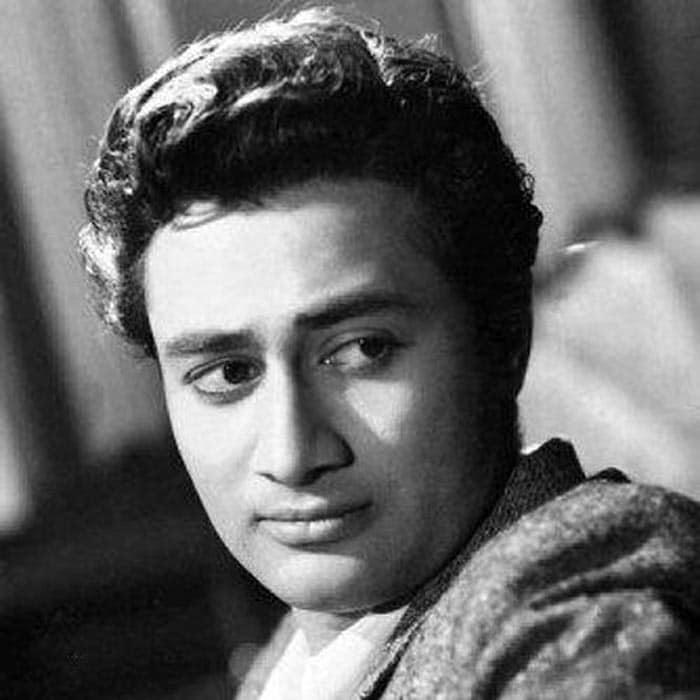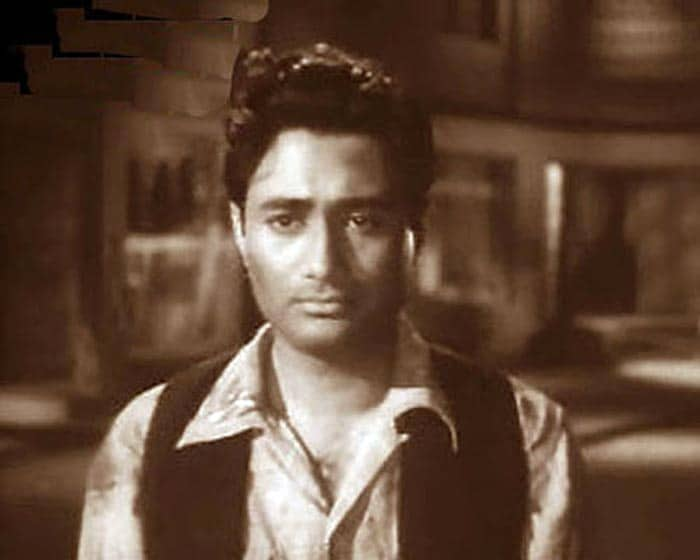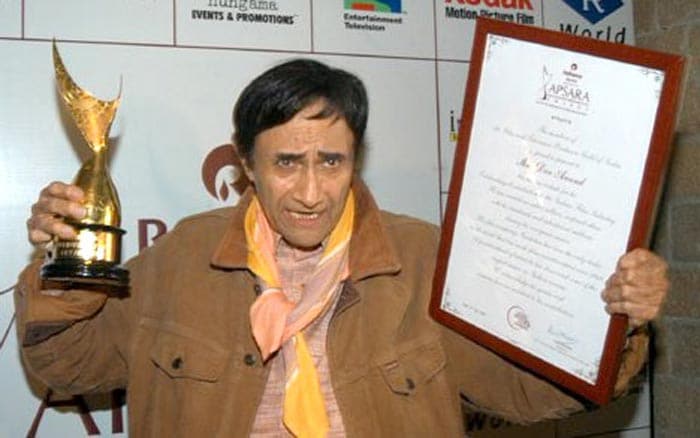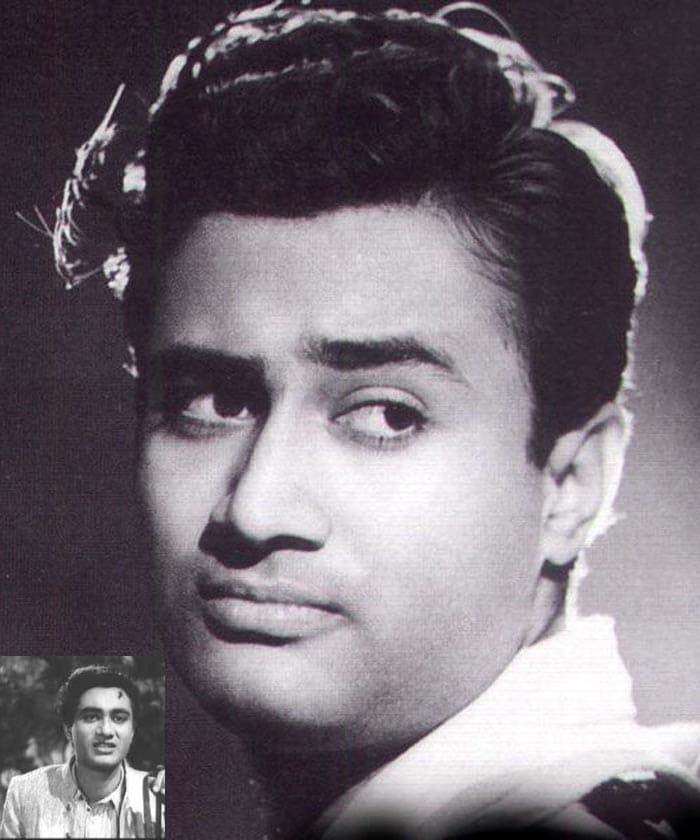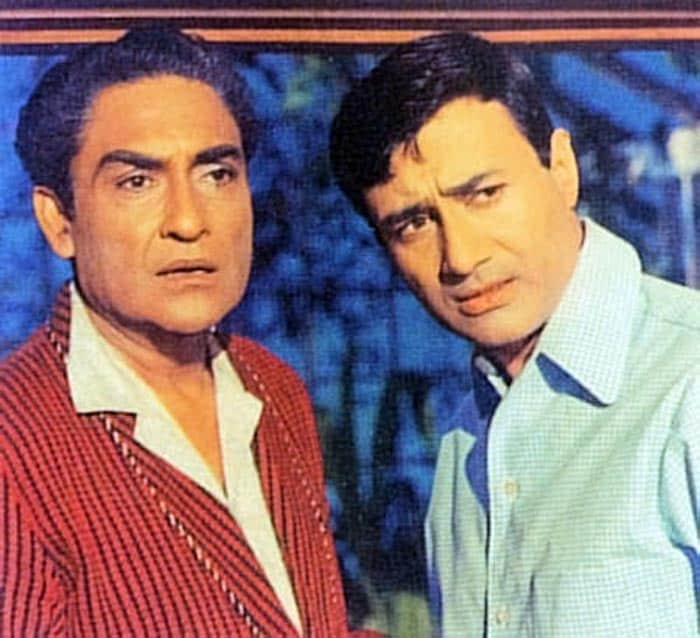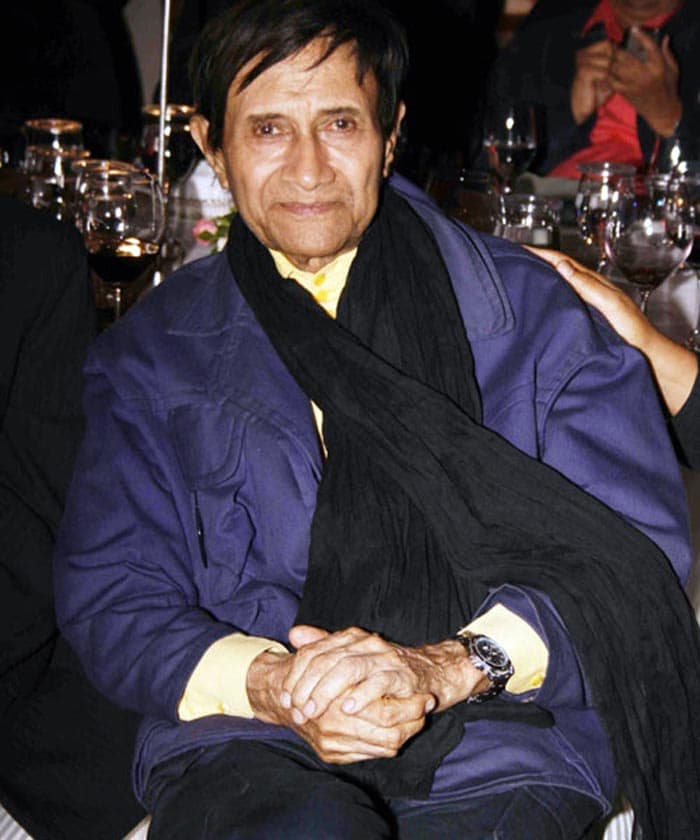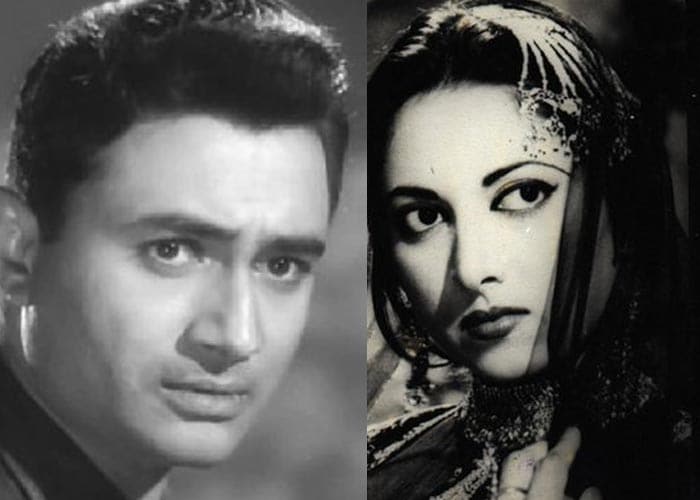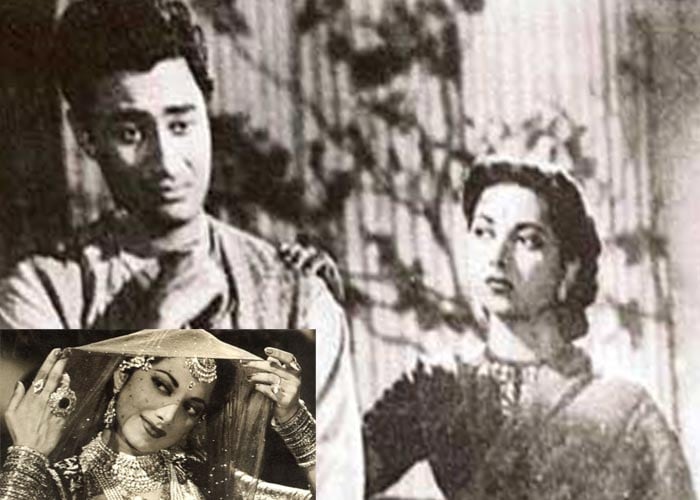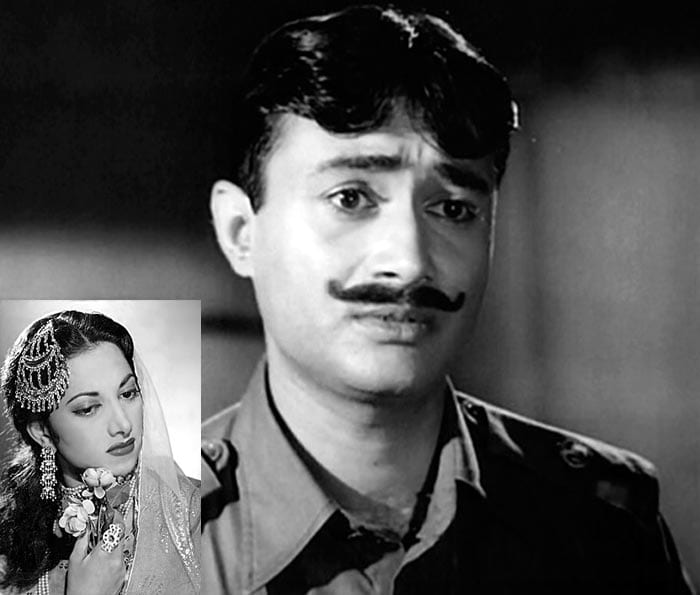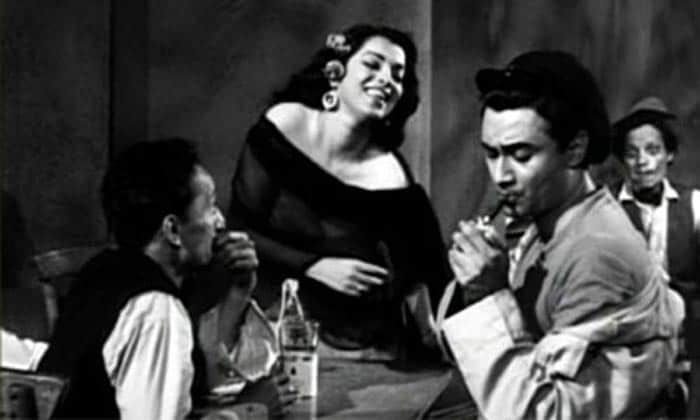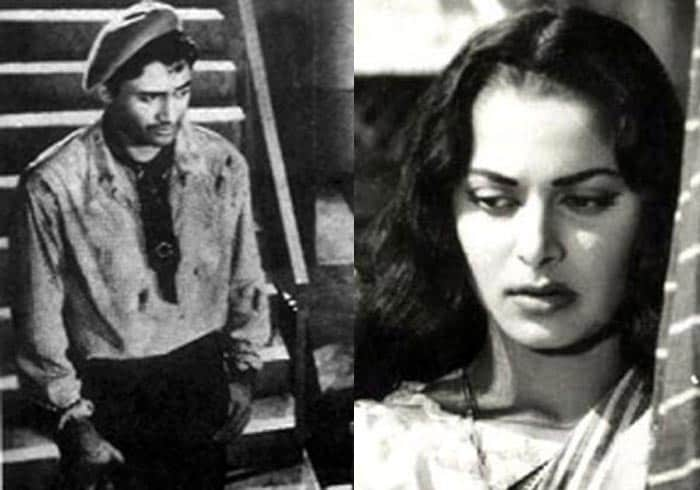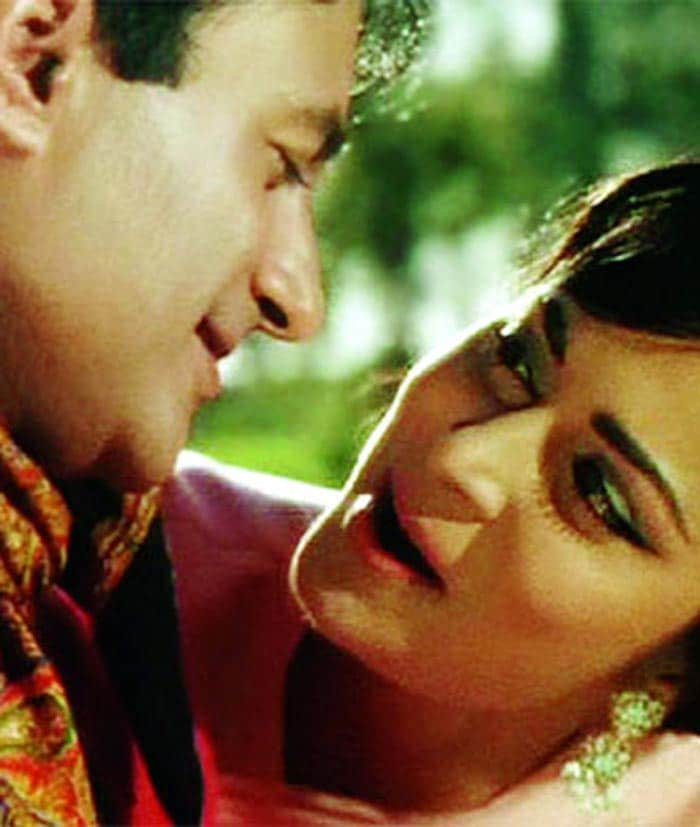Film industry prays for Dev Anand
A memorial service was held today for legendary actor and filmmaker Dev Anand at Mehboob Studios in Mumbai.
-
The last rites of Dev Anand, who passed away in London on December 3 following a heart attack, were performed on Saturday (December 10) at the Putney Vale Crematorium in London. A memorial service was also held at the Bharatiya Vidya Bhavan in London, the same day.
Coming Up: The final farewell to the legendary actor. -
Friends and family carry the casket of Dev Anand, surrounded by mourners and media, as it arrives at the Putney Vale Crematorium in London on Dec. 10, 2011.
In this picture Dev Anand's son Suneil Anand and Chairman of Sahara India Pariwar Subrata Roy carry the casket. -
Dev Anand, the 'Evergreen Romantic Superstar' of Indian cinema, has passed away in London last night following cardiac arrest. He was 88. Dev Anand, who had come here for medical check up, was not keeping well for the last few days, family sources told the Press Trust of India.
-
The evergreen actor Dev Anand was born on September 26th, 1923, in Shakargarh Tehsil of Gurudaspur district (now in Narowal District, Pakistan) in undivided Punjab.
While Dev Anand's mother was a pious, loving and deeply religious lady, his father was a leading lawyer of Gurdaspur, who wanted to give first grade education to all his children.
His father had a command over Persian and Arabic languages and at times he used to recite from the Islamic scriptures and explained the meaning to illiterate Muslims. At other times he used to narrate chaste Urdu poetry. -
Dev Anand is the second of three brothers who were active in Hindi Cinema. His brothers are Chetan Anand and Vijay Anand.
Their sister, Sheel Kanta Kapur, is the mother of renowned Hindi and English film director Shekhar Kapur.
Inset: Dev Anand (Center) with brothers Vijay (Left) and Chetan. -
He graduated in English Literature from the Government College, Lahore, (now in Pakistan).
After graduation, he left his hometown and came to Mumbai in the early 1940's.
He began his career in the military censor office at Churchgate, Mumbai, for a salary of Rs 200.
Later, he joined his older brother Chetan as a member of the Indian People's Theatre Association (IPTA). -
The Government of India honoured Dev Anand with the Padma Bhushan in 2001 and the Dadasaheb Phalke Award in 2002 for his contribution to Indian cinema.
In a career spanning over five decades, he has received three Filmfare Awards and the Filmfare Lifetime Achievement Award in 1991. -
Dev Anand's first film as an actor was the 1946 film Hum Ek Hain. The film also saw him share screen space with the legendary Guru Dutt. It was on the sets of this film that he and Guru Dutt became friends.
They had a unique understanding between themselves that if one of the two becomes successful first in film industry then they would help the other to be successful so if Dev Anand produced a film, Guru Dutt would direct it and when Guru Dutt directed a film, Dev Anand would act in it.
Inset: Dev Anand's look in the film Hum Ek Hain. -
In the late forties Dev Anand started getting offers to star opposite singer-actress Suraiya in woman oriented films, as the male lead.
Although Dev had tasted success in the films he starred in with Suraiya, the producers and directors attributed the success of these films to the acting prowess and screen presence of Suraiya.
Suraiya was always first billed star in credits implying that she was a bigger star than Dev Anand and he considered himself lucky to get a chance to star with an established actress and accepted the offers. -
The two of them were paired in six films together — Vidya (1948), Jeet (1949), Shair (1949), Afsar (1950), Nili (1950), Do Sitare (1951) and Sanam (1951), which were all successful at the box office and it was while shooting for them that the duo fell in love.
The relationship was affirmed during the shooting of the song Kinare Kinare Chale Jayenge from the film Vidya, where during the shoot, a boat capsized and Dev Anand ended up saving his ladylove Suraiya from drowning. -
The clandestine affair was aided by their friends Durga Khote and Kamini Kaushal, who went out of their way to engineer secret rendezvous between the two.
On the sets of the film Jeet, Dev Anand finally proposed to Suraiya and gave her a diamond ring worth Rs 3,000.
But as luck would have it, her maternal grandmother opposed the relationship as they were Muslim and Dev Anand Hindu, and so, Suraiya remained unmarried all her life.
Inset: Suraiya. -
Dev was directed by Guru Dutt in the crime thriller, Baazi (1951). The film starred Dev Anand, Geeta Bali and Kalpana Kartik and became a cult classic, a trendsetter of urban crime films that followed in Bollywood in the 1950s.
Mona Singh was given the screen name of Kalpana Kartik by Dev Anand's eldest brother Chetan Anand.
Her pairing with Dev was a big success at the box office and they were offered many films together. They signed all the offers and starred in Aandhiyan (1952), Taxi Driver (1954), House No. 44 (1954), and Nau Do Gyarah (1957), all of which went on to become big hits.
During the making of Taxi Driver, the couple fell in love and Dev proposed marriage to Kalpana. They married in a secret ceremony in 1954 and the couple have two children —a son, Suneil and a daughter Devina.
After her marriage, Kalpana Kartik decided not to pursue her acting career. -
Dev Anand starred opposite the then newcomer Waheeda Rehman in C.I.D. (1956), Solva Saal (1958), Kala Bazar (1960) and Baat Ek Raat Ki (1962) and the unforgettable Guide (1965) besides others.
Apart from his pairing with Suraiya and Kalpana Kartik, his pair with Nutan and Waheeda Rehman was popular among the audiences in late 50's and 60's. His films Rahee and Aandhiyaan, were screened along with Raj Kapoor's Awaara.
